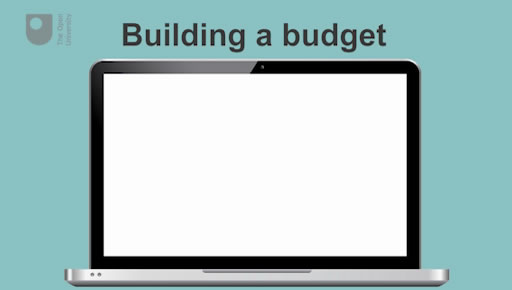9 Building your first budget
It’s time to start building your budget. Before you do so watch this short video which sets out the simple steps involved.

Transcript
Activity 6 Your first budget grid
Now have a go for yourself. You can either key your answers into the table below or download and complete a Word version of the budget grid [Tip: hold Ctrl and click a link to open it in a new tab. (Hide tip)] .
Pay close attention to the income and spending categories.
One of the key benefits of a budget is the insights you can gain from it. When you’ve compiled your budget answer the three questions that follow.
| Monthly income | £ | Monthly spending | £ |
|---|---|---|---|
| Pocket money | Mobile phone cost (including insurance) | ||
| Income from work (after any deductions like tax) | Clothing/footwear | ||
| Other income (e.g. birthday presents) | Travel/transport | ||
| Proceeds from sale of items (e.g. trade-in payment on mobile phone) | Socialising | ||
| Presents | |||
| Holidays | |||
| Deposit into your savings account | |||
| Other spending | |||
| Total | Total | ||
| Surplus income | Surplus income |
- Have you got a surplus of income over spending or the reverse?
- Are all months similar when it comes to budgeting?
- What’s the reason for having a contribution to a savings account as an item of monthly spending?
Feedback
- If you’ve ended up with a surplus of income over spending this is good news. It enables you to save more for the short term at least to cover a month where spending exceeds income. If you have an excess of spending over income you will have to draw on another source of funds (your savings account?) to cover the shortfall.
- No, each month is different. Spending should be expected to peak at key points of the year – at an annual festival that you celebrate with your community, like Christmas, or when you go on holiday. Income can expect to rise during school holidays when you can work for longer hours, or when it’s your birthday.
- This is a good way to embed ‘savings activity’ into the management of your finances. It makes sure that you have extra resources to draw on when you make major purchases or at other times when your finances are under pressure.
